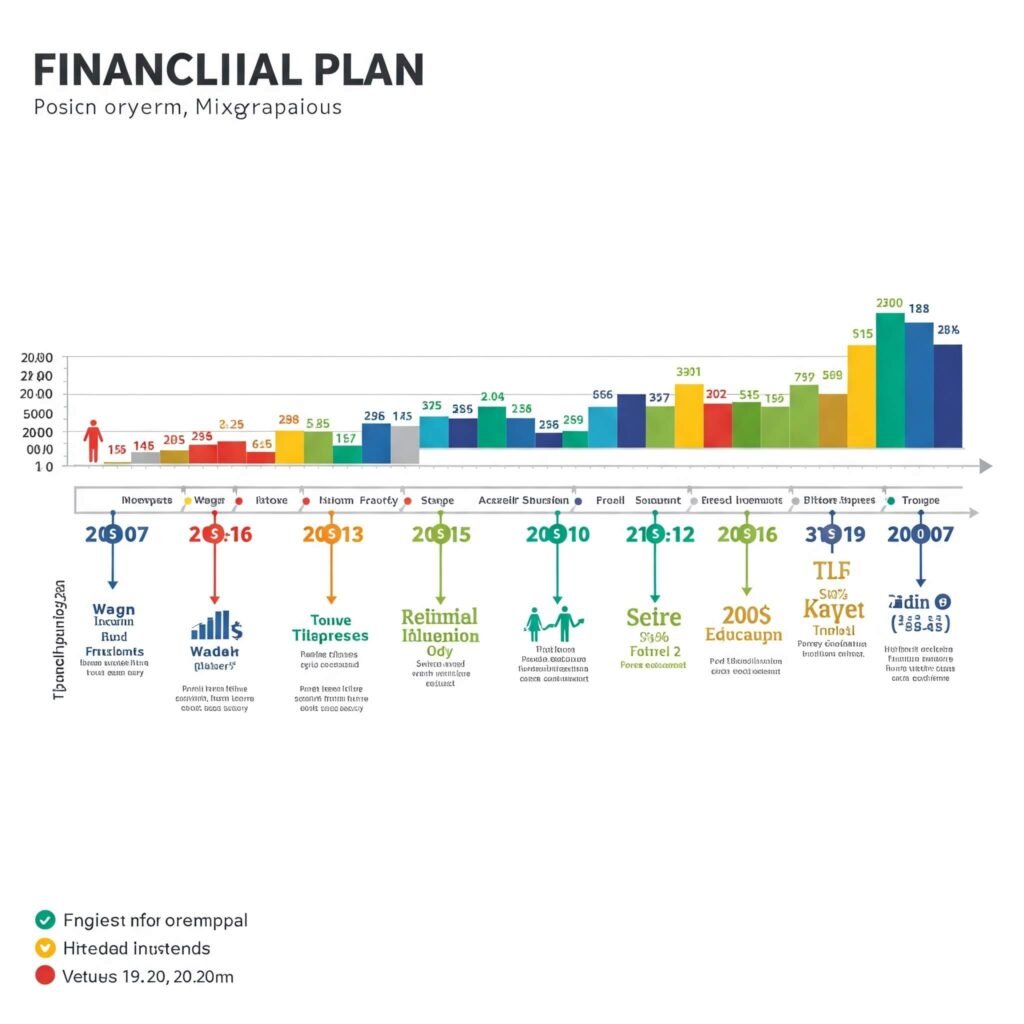As you approach or have already embarked on the golden years, the question of financial security after retirement likely weighs heavily on your mind. Having navigated the working world and accumulated your hard-earned savings, ensuring these resources last – and thrive – long into the future is paramount. This isn’t just about having enough to pay the bills; it’s about maintaining your lifestyle, pursuing your passions, and enjoying the fruits of your labor without constant financial worry. Let’s dive into actionable strategies to build robust financial security after retirement.
Laying the Foundation for Lasting Financial Security After Retirement
Building a solid foundation is crucial for achieving long-term financial security after retirement. This involves a holistic approach that considers various aspects of your financial landscape.
1. Craft a Comprehensive Retirement Income Plan
Simply knowing your total savings isn’t enough. You need a detailed plan outlining your expected income sources and potential expenses.
- Identify all income streams: This includes Social Security benefits (check your estimated benefits at the Social Security Administration website), pensions, annuities, and income from investments.
- Estimate your expenses: Consider both essential costs (housing, healthcare, food) and discretionary spending (travel, hobbies). Be realistic and factor in potential increases due to inflation or unforeseen medical needs.
- Project long-term needs: Don’t just think about the next few years. Consider how your needs and expenses might evolve over a longer retirement horizon (20, 30 years or more).
- Seek professional advice: A financial advisor specializing in retirement planning can provide personalized guidance and help you create a robust plan tailored to your specific circumstances. Consider consulting a Certified Financial Planner (CFP®) – you can find one through organizations like the CFP Board.

2. Optimize Your Investment Strategy for Long-Term Growth
Once you have a plan, your investment strategy plays a vital role in ensuring your financial security after retirement.
- Diversification is key: Don’t put all your eggs in one basket. Spread your investments across different asset classes (stocks, bonds, real estate, etc.) to mitigate risk.
- Consider your risk tolerance: As you age, your risk tolerance might change. However, for long-term growth, especially in early retirement, a balanced approach with some exposure to growth-oriented assets is often beneficial.
- Focus on tax-efficient investing: Utilize tax-advantaged retirement accounts (like 401(k)s, IRAs) and consider the tax implications of your investment decisions.
- Regularly review and rebalance: The market fluctuates, and your needs may change. Periodically review your portfolio and rebalance it to maintain your desired asset allocation.
Smart Strategies to Enhance Financial Security After Retirement
Beyond the foundational steps, several smart strategies can further bolster your financial security after retirement.
3. Strategically Manage Your Withdrawal Rate
One of the biggest risks to financial security after retirement is outliving your savings. A well-thought-out withdrawal strategy is crucial.
- The 4% Rule (as a guideline): A common rule of thumb suggests withdrawing around 4% of your initial retirement savings each year, adjusting for inflation in subsequent years. However, this is just a guideline, and your individual circumstances may warrant a different approach.
- Consider dynamic withdrawal strategies: These strategies adjust your withdrawals based on market performance and your remaining life expectancy, potentially allowing for more flexibility.
- Be mindful of large, unexpected expenses: Plan for potential large expenses like home repairs or significant healthcare costs.
4. Prioritize Healthcare Planning
Healthcare costs are a significant concern for retirees. Proactive planning is essential for maintaining financial security after retirement.
- Understand your Medicare options: Familiarize yourself with Medicare Parts A, B, C, and D, and choose the coverage that best suits your needs. Visit the official Medicare website for detailed information.
- Consider supplemental insurance: Medigap policies or Medicare Advantage plans can help cover out-of-pocket healthcare expenses.
- Plan for long-term care: Long-term care expenses (nursing homes, assisted living, in-home care) can be substantial. Explore long-term care insurance or other strategies to address these potential costs.

5. Optimize Your Housing Situation
Housing is often a significant expense in retirement. Optimizing your housing situation can significantly contribute to your financial security after retirement.
- Consider downsizing: If your children have moved out, a smaller home can reduce mortgage payments, property taxes, insurance, and maintenance costs.
- Explore alternative living arrangements: Consider options like retirement communities or cohousing if they align with your lifestyle and financial goals.
- Evaluate the possibility of aging in place: If you plan to stay in your current home, factor in potential modifications needed for accessibility and consider the ongoing maintenance costs.
6. Manage Debt Effectively
Carrying significant debt into retirement can erode your financial security after retirement.
- Prioritize paying off high-interest debt: Focus on eliminating credit card debt and other high-interest loans before or early in retirement.
- Be cautious about taking on new debt: Avoid unnecessary borrowing in retirement.
- Develop a plan to manage existing debt: If you have a mortgage or other loans, ensure you have a sustainable plan for repayment.

Key Takeaways for Lasting Financial Security After Retirement
Ensuring financial security after retirement is an ongoing process that requires proactive planning and consistent effort. Here are some key takeaways:
- Start planning early: The sooner you begin, the more time your investments have to grow.
- Create a realistic budget: Understand your income and expenses to make informed financial decisions.
- Stay informed: Keep up with economic trends and how they might impact your retirement finances.
- Be flexible: Your needs and circumstances may change over time, so be prepared to adjust your plan accordingly.
- Don’t be afraid to seek help: A qualified financial advisor can provide invaluable guidance.
By implementing these strategies and staying proactive, you can significantly enhance your financial security after retirement and enjoy your well-deserved years with greater peace of mind.







































